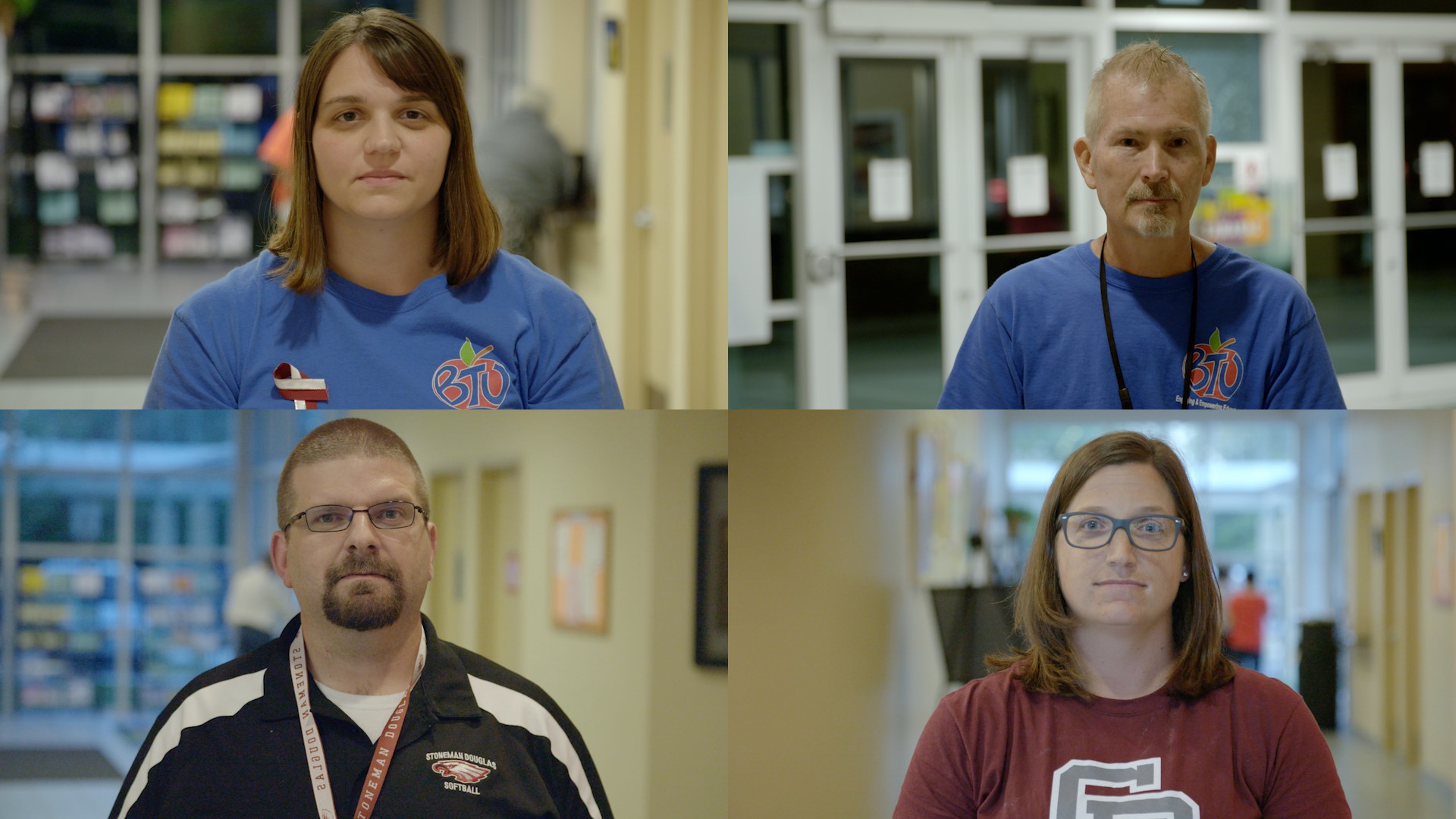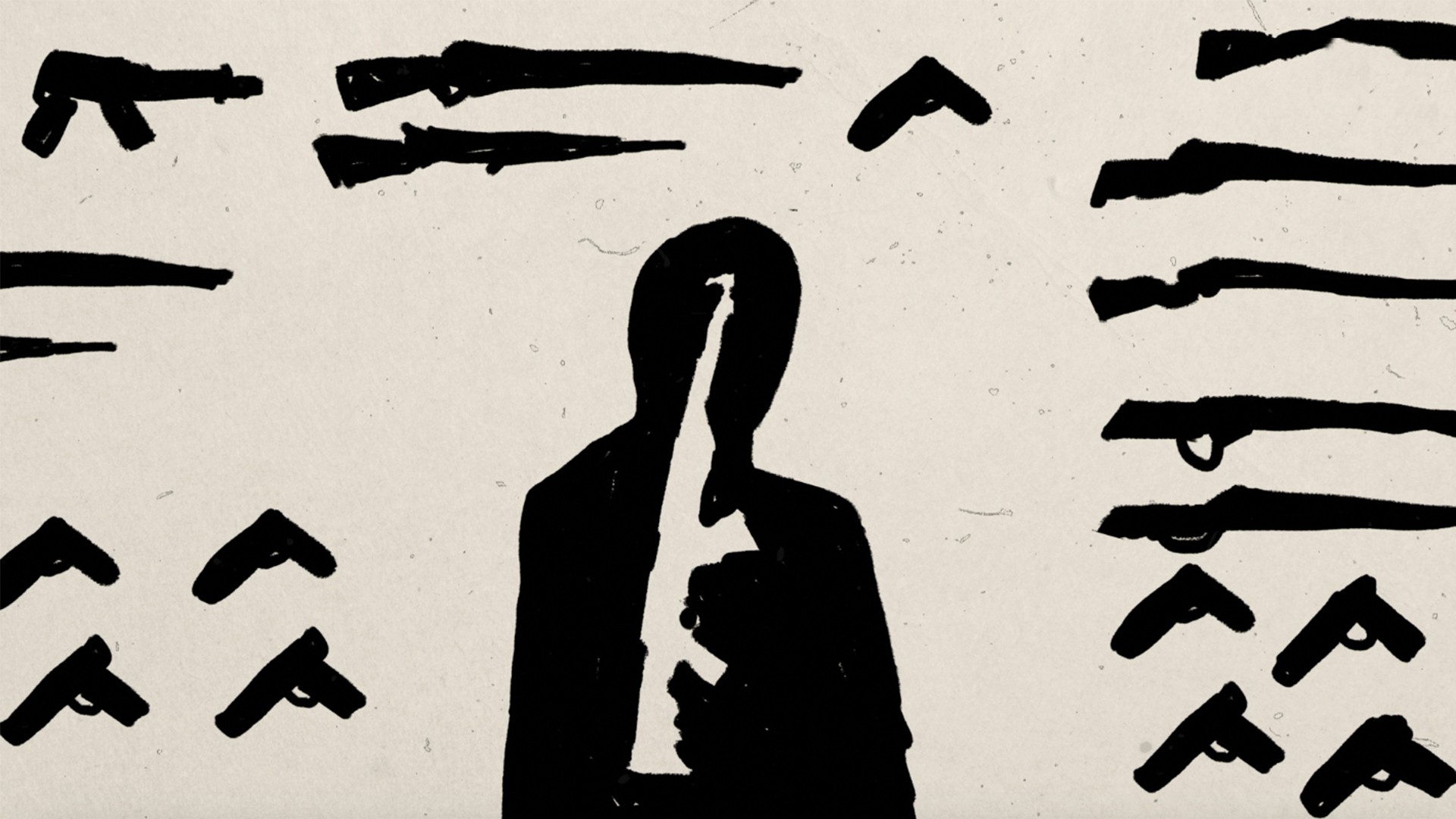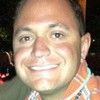Photo courtesy the author/image by Lia Kantrowitz
This article is part of the Voices of School Shooting Survivors project, a series by VICE.com intended to shine a light on victims of school shootings across the country.On April 20, 1999, two gunmen killed 13 and injured 24 at Columbine High School in Colorado. Zachary David Cartaya survived, and has now dedicated his life to helping people through public service.When I graduated Columbine High School in 1999 adrift in the chaos that was the aftermath of the shooting there, the school principal, Frank DeAngelis, addressed his students. “Recovery isn’t a race, it’s a marathon,” he told us. It had only been a few months. It’s been nearly 20 years since, and I’ve now heard Frank say this countless times.He said it on the first anniversary of Columbine. He said it when the Olympic Torch passed through Colorado. He’s said it in countless radio and television interviews. He said it on the ten-year anniversary of Columbine and at our ten-year high school reunion. He said it to me personally over dinner a few months ago.And even though I’ve heard this well-worn phrase ad nauseam over the years, I’d somehow failed to actually live it. For starters, I never liked the word. “Recovery.” It’s so easy to associate recovery with addiction or surgery or major diseases like cancer. And I was always more than a little embarrassed to say I’m in recovery, treating “invisible wounds” (a term used by veterans to describe post traumatic stress disorder) that are now almost two decades old. I always feel like the term was reserved for people whose suffering is much more substantial than mine. This simple belief was a stumbling block.I graduated from Columbine and maintained a close circle of friends and family to support me after the tragedy. I went to college and earned undergraduate degrees and a master’s degree. I went on to a high-ranking position with a major financial firm. I left my career in finance and dove head first into an ongoing career in public service to help people. I co-founded a nonprofit, the Rebels Project, to ensure other survivors, who weren’t as fortunate as I was in terms of access to mental-health treatments, were able to gain that access. On the surface, things for me appeared fine. But there were cracks I wasn’t dealing with in the foundation. Despite the positive trend my life seemed to be on, I began to inexplicably suffer from crippling anxiety and depression. I was fortunate enough to have excellent insurance and access to a range of mental-health treatments. I got better. Until I didn’t. A few impactful and devastating events in my personal life made me realize I wasn’t as equipped for dealing with my own trauma as I thought I was. I began using drugs and drinking too much. This pushed away friends, and forced me further into a hole. I’d lost the ability to cope, and had decided I’d kill myself. Even picked out a spot to do it. I was going to drop my beloved dog at a shelter, drive to a beautiful place in the mountains that I visited frequently with my friends, and use my vehicle’s exhaust to suffocate myself. My mother was the one who (barely) caught me on my way out the door to go end my life.I’d stopped running my marathon. I refused to acknowledge the clear and dangerous warning signs that popped up. Forgetting the words Frank had said so many times, I was under the impression it had already been run. I believed I’d already beaten the demons of Columbine through education and therapy. Besides, I had too much going on—I didn’t have time for nervous breakdowns, or for that matter, self-care. I realize now this is a ridiculous premise.After my mom found me and forced me to really look at what I was doing, I took a leave of absence from my job and checked into an intensive outpatient program (IOP) to run my marathon in earnest. I spent six hours a day working with therapists, psychiatrists, and counselors. Then I would drive to my other therapist’s office, and for two hours a day, we began to do work on the roots of my breakdown (including using EMDR, which I cannot recommend enough). Then the other hours of my days and weekends were completely supervised by my team of doctors (yes, I literally had a team of doctors, and, yes, I feel ridiculous about that). I had to go back to basics. I had to learn to walk all over again, but what I learned during that time about myself and recovery was invaluable.
A few impactful and devastating events in my personal life made me realize I wasn’t as equipped for dealing with my own trauma as I thought I was. I began using drugs and drinking too much. This pushed away friends, and forced me further into a hole. I’d lost the ability to cope, and had decided I’d kill myself. Even picked out a spot to do it. I was going to drop my beloved dog at a shelter, drive to a beautiful place in the mountains that I visited frequently with my friends, and use my vehicle’s exhaust to suffocate myself. My mother was the one who (barely) caught me on my way out the door to go end my life.I’d stopped running my marathon. I refused to acknowledge the clear and dangerous warning signs that popped up. Forgetting the words Frank had said so many times, I was under the impression it had already been run. I believed I’d already beaten the demons of Columbine through education and therapy. Besides, I had too much going on—I didn’t have time for nervous breakdowns, or for that matter, self-care. I realize now this is a ridiculous premise.After my mom found me and forced me to really look at what I was doing, I took a leave of absence from my job and checked into an intensive outpatient program (IOP) to run my marathon in earnest. I spent six hours a day working with therapists, psychiatrists, and counselors. Then I would drive to my other therapist’s office, and for two hours a day, we began to do work on the roots of my breakdown (including using EMDR, which I cannot recommend enough). Then the other hours of my days and weekends were completely supervised by my team of doctors (yes, I literally had a team of doctors, and, yes, I feel ridiculous about that). I had to go back to basics. I had to learn to walk all over again, but what I learned during that time about myself and recovery was invaluable.

Ups and downs are part of everyone’s life. Setbacks are inevitable, but for survivors, they can be devastating. The mind of a survivor is an interesting and fragile thing. In working with other survivors through the nonprofit, I’ve heard stories about how spilling a drink or tripping over one’s own feet have caused hysterical fits of tears and or rage. For survivors, the smallest incident can feel like a life shattering event. When you’ve come out of a life-changing tragedy, you assume you’ll be stronger and able to differentiate and regulate your emotions between a spilled drink and the loss of a loved one. But I’ve found—both personally and through my work—that’s not the case.It’s not hard for survivors to spiral downward. I know this firsthand. It’s fine (even great or powerful) to have confidence in your own coping skills, but I now make it a point to tell someone how I’m feeling no matter how benign the trigger. In my own life, work is incredibly busy and the nonprofit seems to be growing hourly. Good and bad things happen to everyone, but based on my prior experience, I know they can easily overwhelm me and overtake my life. So, I do what I need to do to avoid a massive step back. I schedule regular appointments with my therapist. Though it is undeniably hard to reach out to someone and say “I’m struggling,” it is an incredibly important step. I tend to my foundation. I stretch because there’s a long way to run yet.I’m still uncomfortable saying I’m “in recovery.” But at least I can admit I’m running this particular leg of my marathon with no signs of stopping. For now, that’s enough.
Advertisement
Advertisement

Advertisement

Ups and downs are part of everyone’s life. Setbacks are inevitable, but for survivors, they can be devastating. The mind of a survivor is an interesting and fragile thing. In working with other survivors through the nonprofit, I’ve heard stories about how spilling a drink or tripping over one’s own feet have caused hysterical fits of tears and or rage. For survivors, the smallest incident can feel like a life shattering event. When you’ve come out of a life-changing tragedy, you assume you’ll be stronger and able to differentiate and regulate your emotions between a spilled drink and the loss of a loved one. But I’ve found—both personally and through my work—that’s not the case.It’s not hard for survivors to spiral downward. I know this firsthand. It’s fine (even great or powerful) to have confidence in your own coping skills, but I now make it a point to tell someone how I’m feeling no matter how benign the trigger. In my own life, work is incredibly busy and the nonprofit seems to be growing hourly. Good and bad things happen to everyone, but based on my prior experience, I know they can easily overwhelm me and overtake my life. So, I do what I need to do to avoid a massive step back. I schedule regular appointments with my therapist. Though it is undeniably hard to reach out to someone and say “I’m struggling,” it is an incredibly important step. I tend to my foundation. I stretch because there’s a long way to run yet.I’m still uncomfortable saying I’m “in recovery.” But at least I can admit I’m running this particular leg of my marathon with no signs of stopping. For now, that’s enough.
